


Ubuntu Living
Requirements
Description
Watch the Video
Watch Ubuntu Living at Tucson Festival of Books
Watch - Kadidra Testimony Video
Introduction The game’s focus on communal interdependence, empathy, and respect is well-aligned with the Ubuntu philosophy. Ubuntu is a Bantu word that means “I am because you are.” It is a philosophy that emphasizes the interconnectedness of all people and the importance of treating others with compassion and respect. The Ubuntu Living game aims to help players improve their compassion, communication, and collaboration skills by having them tell stories about their own experiences with the themes and subtopics presented on the cards.
Players can learn to be more empathetic, understanding, and supportive of others by playing the game. They can also learn to communicate effectively and work together towards common goals. For example, players could tell stories about times when they have overcome challenges through teamwork and collaboration. This could help them develop a belief in their ability to overcome adversity and achieve their goals. The Ubuntu Living game concepts also increase resilience to deliver value personally and for communities and organizations.
The Ubuntu Living game is a valuable tool for anyone who wants to improve their personal and professional skills. It is a fun and engaging way to learn about compassion, communication, and collaboration and to apply these skills in real-world situations.
Card Deck The game is played with a deck of 54 cards, divided into nine themes: 1) Go Fast, Go Alone, 2) Go Far, Go Together; 3) I See You; 4) I Value You; 5) I Welcome You; 6) Patience and Kindness; 7) Partnership; 8) Safety; and 9) Resilience. Each theme has five sub-topics, for a total of 54 cards. Each card contains one of the nine themes prefixed with “T:”. Some cards have a sub-topic prefixed with “S:”. For example, “T: Go Fast, Go Alone” and "S: Self-reliance”. The game’s winner uses the themes and subtopics to tell a story.
Setup The dealer shuffles the deck and deals seven (7) cards to each player clockwise. The remaining cards are placed face down in the center of the table, forming the draw pile. One card is placed face-up. The player to the dealer's left plays first (you can also choose the youngest player), and gameplay follows a clockwise direction.
Playing Time limit: Limit each round to 15 minutes of play. Four rounds are ideal. On your turn, match the last card played by the number or symbol and place your card after. Read the theme and/or subtopic on your card. For example, if the last card has a ‘Check Mark’ symbol and a ‘1’, you must play a card with either a ‘Check Mark’ symbol or ‘1’ after the last card on the table. You can only play one card from your hand or draw one from the draw pile. Add the card to your hand if there is no match from the draw pile. The game moves on to the next person.
Scoring (Optional) You can decide whether to use a scoring system or not. The first option is for the winner to share the winning story only. The second option is to use the numeric value on the cards to tally a winning score. The winner adds the numeric value of the cards played and in hand. Double the score for the winner when the ‘Raspberry Pie’ card is present. The loser subtracts the cards total from the cards left in their hand.
Winning / End the Round The round ends when the first team or individual has no cards. The winner shouts ‘Ubuntu’ after playing the last card. Then, tell a story using five (5) or more themes and/or subtopics from the cards on the table. The winner shuffles the deck and deals to start the next round.
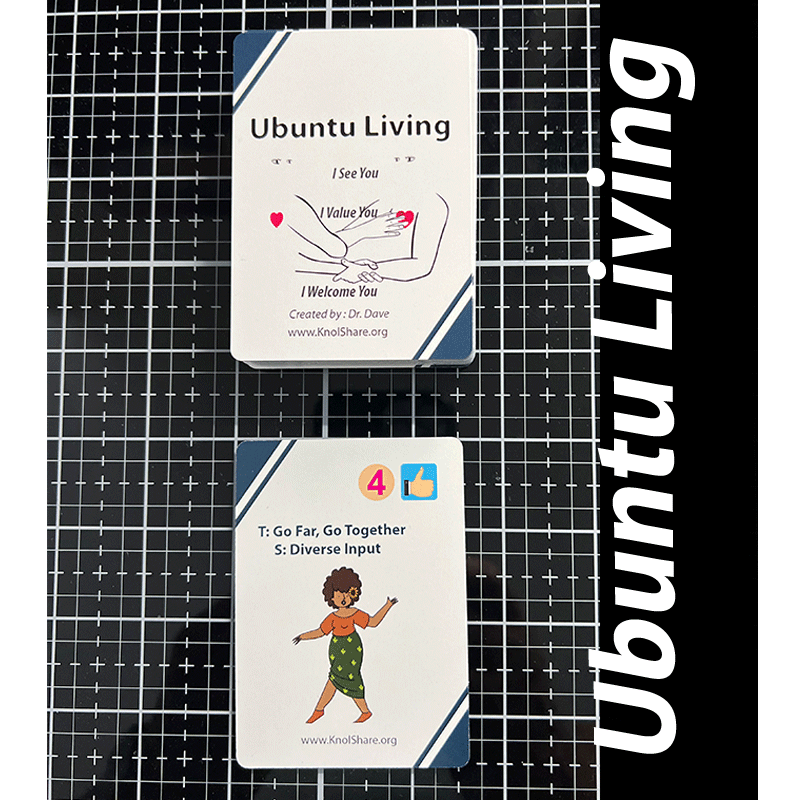
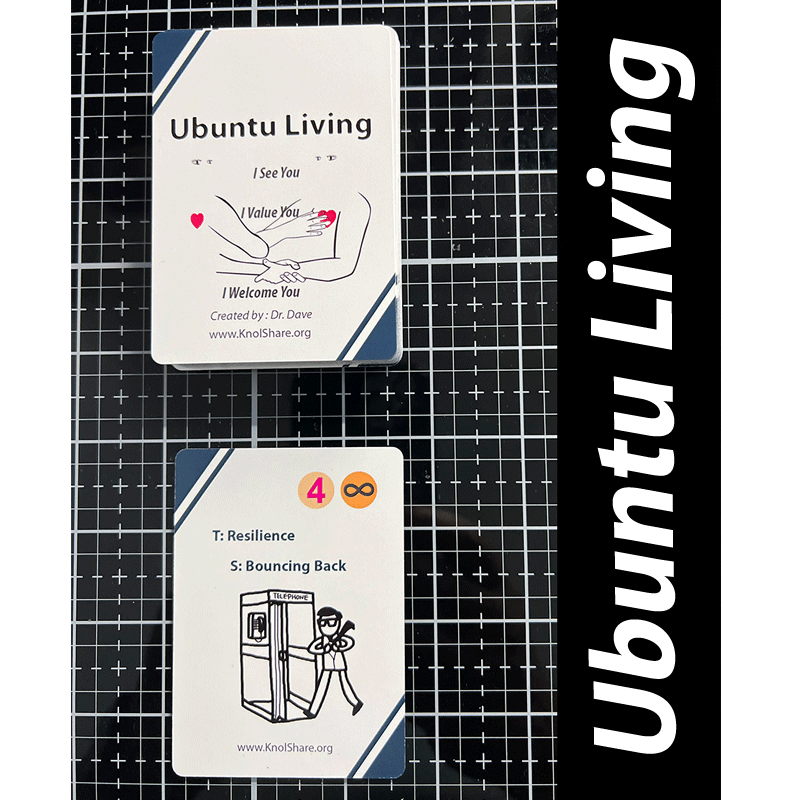
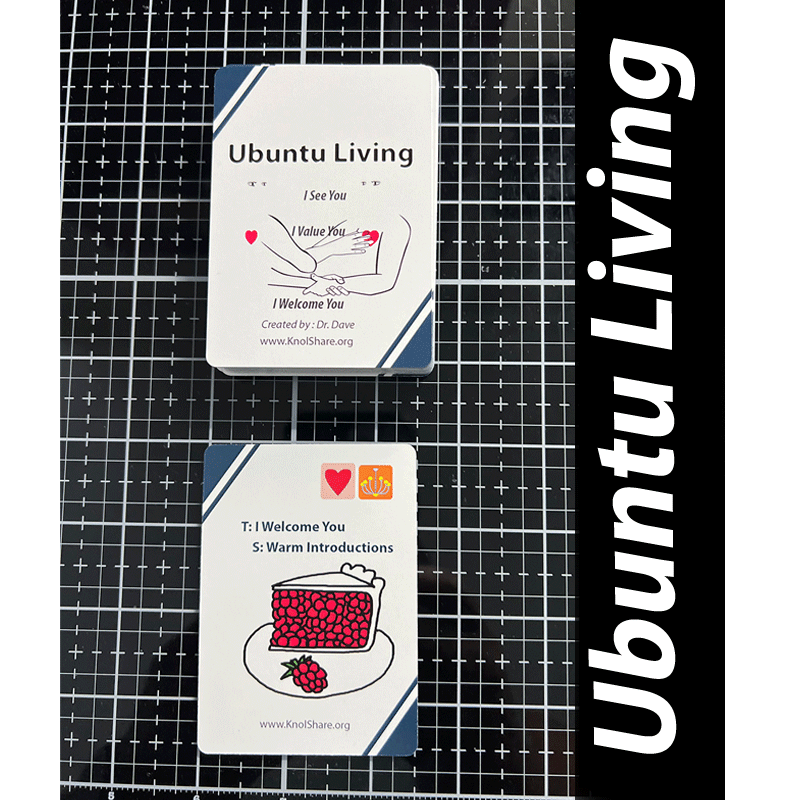
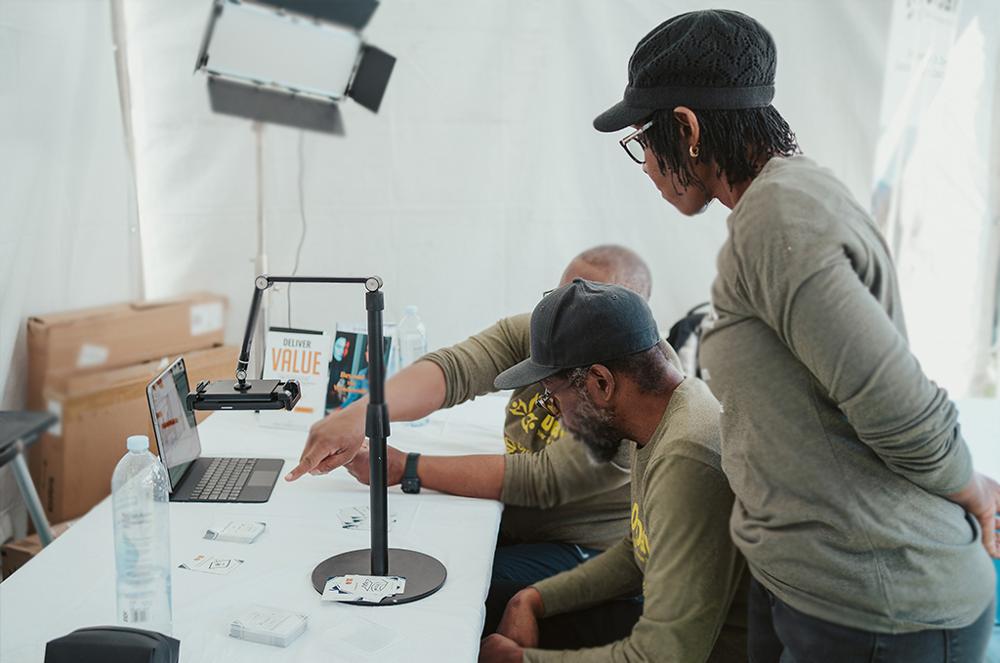

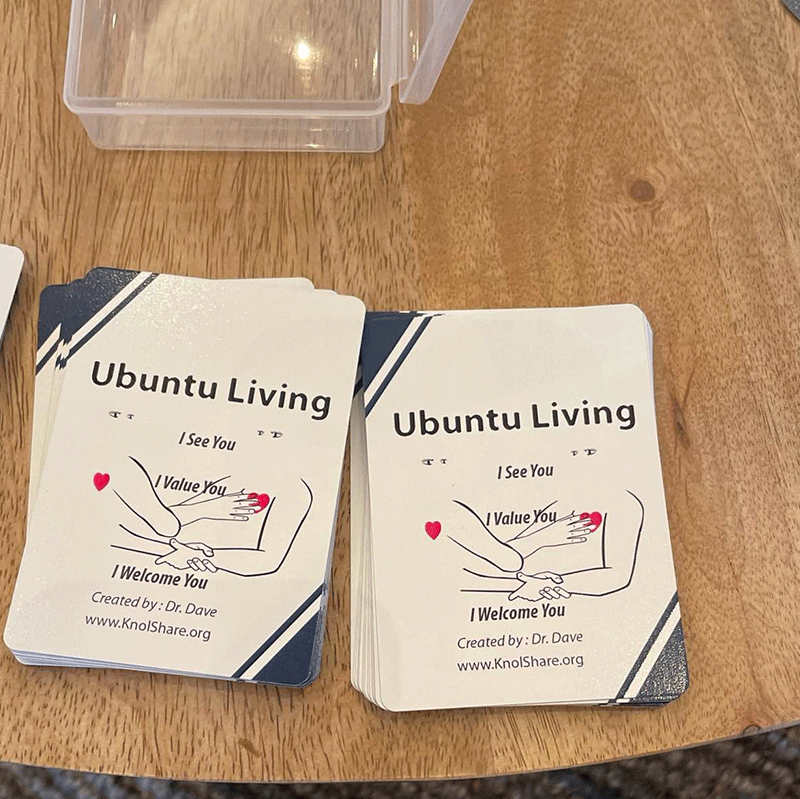
Components
| Component | Quantity | Photo |
|---|---|---|
| {{item.name}} | {{item.quantity}} |
|
Vitals
| Average Rating | 0 reviews |
|---|---|
| Publish Date | September 14, 2023 |
| Edition | First |
| Department | Games |
| Tags | {{tag.properties.name}} |
| More Info | Ubuntu Living web site |
Why buy this?
- Play as a team or individual.
- Be creative with your stories.
- Learn how to See, Value, and Welcome people.
Related Games
Downloads
Dr. Dave A. Cornelius, aka Dr.
Notes
- This game contains a premium upgrade called UV Coating that makes the printed components more durable.
See It In Action
Ratings and Reviews
{{review.properties.review|truncate(review.stash('truncate')||200)}}

